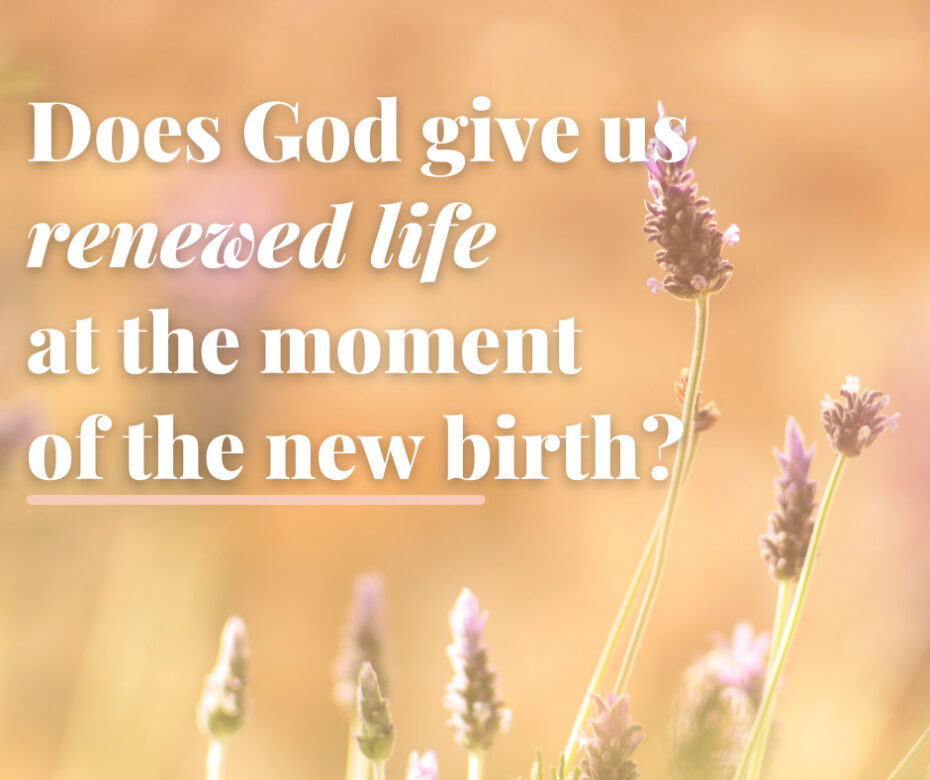Terry sent me a link to a website. Evidently this has been appearing on TV as a commercial. Here is a link to the website and the article entitled, “Heaven or Not?”
Five verses are cited in this article: Gen 1:1; Rom 3:23; John 3:16; 1 John 5:12-13; and Eph 2:8-9. The fact that John 3:16 and Eph 2:8-9 are prevalent is great. Also, 1 John 5:12-13 is excellent as well. Genesis 1:1 and Rom 3:23 are nice lead-ins to the need for the gift of everlasting life. So, just looking at the verses, I’m favorable. 5 stars.
However, when we see how the verses are used, my impression drops a few stars.
After quoting John 3:16, a box says, “When the Bible talks about eternal life, that means after we die we get to live forever with God if we choose to believe and accept Jesus into our hearts.” Of course, John 3:16 says nothing about “accept[ing] Jesus into our hearts” or about “choos[ing] to believe.” (Belief is not a choice. We are either persuaded or not. We can choose to pray about what we hear. We can ask questions and discuss this with people. But there never is a point where we decide to believe. You can only believe what you are convinced is true.)
Then below that box, this question is given: “When we accept the truth of his resurrection, we can begin to answer the question of, ‘where do we go when we die?’” Once again, John 3:16 is not discussing Jesus’ resurrection or even where we go when we die. I get the point that His resurrection suggests that all humans will one day be raised, or at least that all who believe in Him will gain glorified bodies. But that is not found in John 3:16.
Then, after quoting 1 John 5:12-13, the website states: “If you feel ready to take the next step in your journey with Christ, accept the gift of love and eternal salvation today. Begin to live your life with the reassurance of hope in Jesus by accepting him into your heart by praying this simple prayer.” The train has come off the tracts. That isn’t a Lordship Salvation message, though the prayer that follows sounds like a soft version of that. Being born again is not “a step in your journey with Christ.” The new birth occurs at a moment in time. While there might indeed be many things that happen before we come to faith, it is confusing to speak of being born again as a step in one’s “journey with Christ.”
None of that is what 1 John 5:12-13 is saying.
While any prayer of salvation is a bad idea since Scripture never gives us this sort of thing, the prayer that followed is far from clear: “Dear God, I know I have sinned against you. Please forgive me of all my sin. I believe that your son died and rose again and I pray to receive Jesus as my savior here at this moment. Thank you for renewed life and thank you for forgiving me of my sins. I pray this in Jesus’ name, Amen.”
None of that is found in Gen 1:1; Rom 3:23; John 3:16; or Eph 2:8-9. The part about “Thank you for renewed life” sounds like the person praying is to acknowledge to God that he believes that by praying that prayer God has somehow renewed his life. If the thank you was based on John 3:16 or 1 John 5:12-13, it would say, “Thank you for everlasting life.” Renewed life sounds like a mild form of Lordship Salvation.
Surprisingly, after the prayer comes Eph 2:8-9. The box that follows their quote of those verses is pretty good: “Believing in Jesus and putting your faith in Him gives you the reassurance of everlasting life even after you die. It is not by any actions you can be saved, it truly is only by the grace of God.”
So, I’d rate this website and commercial with 2.5 stars. It is better than a lot of evangelistic presentations. But it falls short of the clarity expressed in John 3:16 and Eph 2:8-9.
I would imagine that most unbelievers reading that or watching that as a commercial would not know that simply by believing in Jesus, they have that everlasting life. I think they would think they need to pray that special prayer. And I think they would wonder why that special prayer would save anyone.


